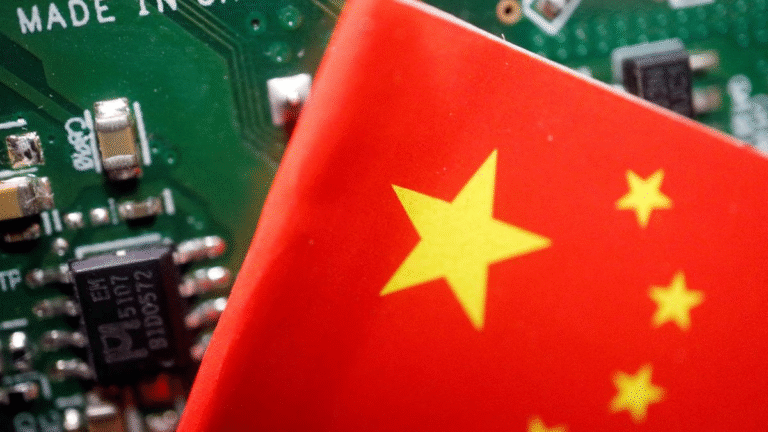
The Trump administration reinstates and expands the “public charge” rule, tightening US visa eligibility worldwide based on health, finances, and self-sufficiency.

🧾 What’s Happening: Trump Revives the “Public Charge” Rule
In a sweeping move that could affect millions of visa seekers around the world 🌍, the Trump administration has ordered US embassies and consulates to enforce stricter visa screening measures under the long-standing “public charge” provision of immigration law.
The US State Department issued a confidential cable instructing officials to deny visas or green cards to applicants who are likely to depend on government assistance such as welfare benefits, healthcare subsidies, or other forms of financial aid.
This marks the return — and expansion — of a Trump-era immigration standard, which was relaxed under President Joe Biden but reinstated after Donald Trump’s return to office in early 2025.
“Self-sufficiency has been a longstanding principle of U.S. immigration policy,” the official memo stated, emphasizing that the “public charge” rule has been part of US immigration law for over a century.
⚖️ What the “Public Charge” Rule Means
The “public charge” rule allows immigration officers to deny entry or permanent residency to anyone deemed likely to become a financial burden on the US government.
Consular officers must now assess applicants on several key factors:
Health and medical history 🏥
Age and employability 👔
English proficiency 🗣️
Financial stability and support documents 💵
Past or potential dependence on government aid 🏛️
According to Fox News, officers are instructed to “examine all aspects of the case” — including medical reports, affidavits of financial support, and even prior instances of receiving government cash assistance.
This broader discretion gives immigration officials greater power to reject visa applications than in previous years.
🩺 Health-Based Visa Rejections: A Controversial Expansion
Under the new directive, certain health conditions may now count as negative factors in the visa process — a significant departure from traditional medical screenings.
Reports from ABC News indicate that visa denials could now be based on chronic health issues such as:
Diabetes
Obesity
Long-term medical care requirements
Previously, medical examinations focused mainly on communicable diseases (e.g., tuberculosis) and vaccination compliance. Now, even non-contagious conditions could be considered potential burdens on public healthcare resources.
This change, critics argue, could discriminate against applicants from developing countries, where access to preventive healthcare is limited.
“The guidance applies broadly to most visa applicants,” said Charles Wheeler, senior attorney with the Catholic Legal Immigration Network. “But it’s likely to be enforced most strictly in cases where people seek permanent residency.”
🏛️ Trump’s Immigration Vision: “America First” Returns
The reactivation of the public charge policy underscores President Trump’s renewed focus on restrictive immigration reforms — echoing the “America First” platform that dominated his first term.
During his 2017–2021 tenure, the Trump administration introduced several measures aimed at curbing low-income and humanitarian immigration, including:
The travel ban on select countries
Reduced refugee admissions
Work visa tightening for H-1B and student categories
Stricter public charge definitions
Biden’s administration rolled back many of these policies, framing them as “anti-immigrant and discriminatory.” However, Trump’s return to the White House in 2025 has seen a swift policy reversal, with the new State Department memo serving as one of the clearest signals yet of a renewed hardline stance.
🌎 Global Impact: Who’s Most Affected?
The directive applies worldwide, affecting applicants at all US embassies and consulates. However, immigration experts believe the impact will vary depending on visa type and country of origin.
Those most likely to be affected include:
Applicants for family-based visas and green cards
Individuals with limited income or chronic health conditions
Immigrants from low-income countries in Asia, Africa, and Latin America
Older applicants with low employability or language barriers
Even though temporary visa categories (such as students and skilled workers) are included, analysts say the rule will most strongly influence immigrant visas leading to permanent residency.
💬 Critics vs. Supporters: The Debate Over “Self-Sufficiency”
The new directive has reignited a fierce debate in the US over how the country defines “deserving” immigrants.
Supporters of the rule argue that it promotes economic responsibility and protects US taxpayers from funding individuals who might rely on welfare.
“Immigration should not be a path to dependency,” said a senior official at the Department of Homeland Security.
Critics, however, say the rule targets low-income applicants unfairly and creates barriers for those genuinely seeking opportunity.
Immigrant-rights advocates warn that such policies can discourage legal immigration, separate families, and fuel xenophobia.
“This is about exclusion, not efficiency,” said Lena Morales, a New York-based immigration lawyer. “The new screening standards disproportionately impact poor, elderly, and disabled immigrants.”
📊 Historical Context: The Law Behind the Policy
The concept of a “public charge” traces back to the Immigration Act of 1882, which first authorized the US to deny entry to individuals unable to care for themselves.
Over time, the rule evolved into a vague but powerful tool — allowing immigration officials broad discretion in determining who might become a burden.
While the Trump administration (2019–2021) aggressively expanded this definition, Biden’s government rolled it back in 2021, restoring a narrower interpretation that focused on direct cash assistance.
Now, with Trump back in power, the original 2019 framework — and beyond — has been restored, reflecting a return to tougher screening and selective immigration.
💡 Expert Insight: Legal and Humanitarian Implications
Legal analysts note that this policy shift could trigger a new wave of litigation, especially if applicants or advocacy groups argue that medical-based denials violate civil rights or anti-discrimination laws.
Human rights groups also fear that the expanded rule could:
Reduce family reunifications
Discourage healthcare access among immigrants
Overburden consular staff with subjective assessments
Meanwhile, immigration lawyers are advising applicants to prepare comprehensive documentation — including proof of financial stability, private insurance, and employment offers — to minimize risk of denial.
🔮 The Road Ahead: What Immigrants Should Expect
As the new “public charge” rules take effect, visa processing times could lengthen due to more detailed scrutiny. Applicants are encouraged to:
Consult immigration attorneys before applying 🧑⚖️
Provide clear evidence of income, employment, or sponsorship 💼
Disclose health conditions transparently, with proof of private care 🏥
Stay updated on embassy-specific guidance 🌐
While the Trump administration insists the rule enforces “fairness and fiscal responsibility,” its critics warn it may reshape America’s immigration landscape — privileging the wealthy and healthy over the vulnerable.
🌟 Final Thoughts
The revival of the “public charge” rule underlines a broader ideological shift in US immigration — from inclusion and humanitarian values to economic selectivity and self-sufficiency.
As consulates worldwide begin implementing the new standards, the implications will be felt across families, economies, and communities that depend on migration as a lifeline.
For millions aspiring to the American Dream, the message is clear:
🇺🇸 “Come prepared, come self-sufficient — or don’t come at all.”
🪶 SEO Summary:
The Trump administration has reinstated and expanded the “public charge” immigration rule, empowering consular officers to deny US visas based on applicants’ health, finances, and dependence on government aid. Critics warn of discrimination and global fallout.






